8 start with Y start with Y

Most editions have been based on the 1892 New England Magazine publication rather than the handwritten manuscript at Radcliffe College. Publication of the unedited manuscript in 1994 sparked controversy over which of the two was definitive. Since then, scholars have discovered half a dozen parent texts for later twentieth-century printings, including William Dean Howells’s version from 1920 and the 1933 Golden Book version.
While traditional critical editions gather evidence and make an argument for adopting one text as preferable to others,“The Yellow Wall-Paper” by Charlotte Perkins Gilman: A Dual-Text Critical Edition, edited by Shawn St. Jean, offers both manuscript and magazine versions, critically edited and printed in parallel for the first time. New significance appears in such facets as the magazine’s accompanying illustrations, its lineation and paragraphing, Gilman’s choice of pronouns, and her original handwritten ending.
This critical edition of “The Yellow Wall-Paper” includes a full and nontraditional apparatus, making it easy for students and scholars to study the more than four hundred variants between the two texts. Four new essays, written especially for this volume, explore the implications of this multitext model.
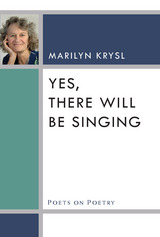
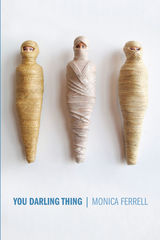
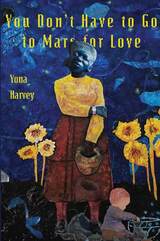
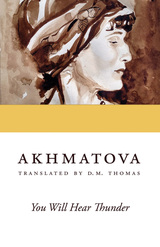
Anna Akhmatova lived through pre-revolution Russia, Bolshevism, and Stalinism. Throughout it all, she maintained an elegant, muscular style that could grab a reader by the throat at a moment’s notice. Defined by tragedy and beauty in equal measure, her poems take on romantic frustration and the pull of the sensory, and find power in the mundane. Above all, she believed that a Russian poet could only produce poetry in Russia.
You Will Hear Thunder spans Akhmatova’s very early career into the early 1960s. These poems were written through her bohemian prerevolution days, her many marriages, the terror and privation of life under Stalin, and her later years, during which she saw her work once again recognized by the Soviet state. Intricately observed and unwavering in their emotional immediacy, these strikingly modern poems represent one of the twentieth century’s most powerful voices.
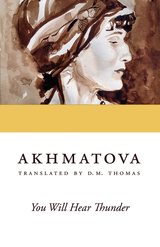
Anna Akhmatova (1889–1966) was part of that magnificent and in many ways tragic generation of Russian artists which came to first maturity before 1917, and which then had to come to terms with official discouragement and often persecution. As D.M. Thomas points out in his introduction, practically none of her poetry was published between 1923 and 1940. Her poetic range was wide, from the transparent anonymity of “Requiem” to the symphonic complexity of “Poem without a Hero.” She was revered and loved not only by the best of her fellow poets but by the ordinary people of Russia: five thousand mourners, mostly the young, crowded to her requiem mass in a Leningrad church.
You Will Hear Thunder brings together for the first time all D.M. Thomas’s translations of Anna Akhmatova’s poems. They were very highly praised on their separate appearances in 1976 and 1979. John Bayley called them “a mastery achievement,” and said of Thomas that “he has profound reverence and affection for the original;” while Donald David wrote that Thomas’s translation was “The first version to explain to me why Akhmatova was so much esteemed by those great poets, Pasternak and Mandelstam and Tsvetaeva.” It is good to have these powerful, noble and compassionate poems in one set of covers.
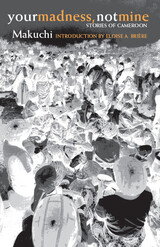
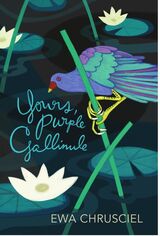
Ewa Chrusciel’s fourth book in English, Yours, Purple Gallinule, playfully explores health and illness as they are culturally constructed. Using research into clinical understandings of mental afflictions and their treatments through history, Chrusciel maps various diagnostics onto an array of bird species. A lyrical satire, the book is a reflection on a society that tends to over-diagnose, misdiagnose, and over-medicate. These poems pose questions about what it means to be unique and to accept pain and suffering as a fact of life.
On the pages of Yours, Purple Gallinule, we encounter birds, a poet, and a psychiatrist. The psychiatrist undergoes a series of conversions as she realizes that the point is not to classify thoughtlessly, but to “make music instead”—to dwell in astonishment. Birds evade the anthropomorphizing intentions of the human protagonists as the psychiatrist and the poet eventually become one. The anthropomorphizing goes in reverse, and the human being becomes more avian. Like the dove in the biblical Noah’s ark story, the bird proclaims a new covenant, with a twig in its beak and a message: “We are all mad; some more than others, but no one is spared the affliction. And the madder we are, the more sacred.”
READERS
Browse our collection.
PUBLISHERS
See BiblioVault's publisher services.
STUDENT SERVICES
Files for college accessibility offices.
UChicago Accessibility Resources
home | accessibility | search | about | contact us
BiblioVault ® 2001 - 2024
The University of Chicago Press









